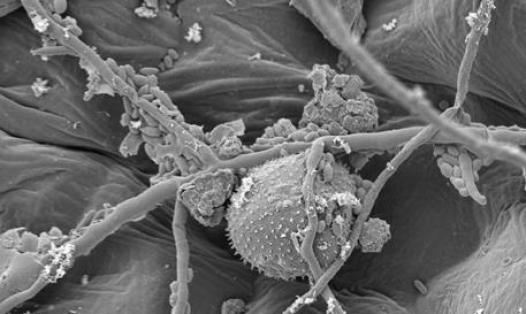


Heather White: I am honoured to receive this thesis award and have my work recognised by King’s. My research explored the relationship between cranial sutures and skull morphology across mammalian taxa.
My PhD was completed in collaboration with the Natural History Museum, where I accessed museum specimens to build a comparative ontogenetic dataset spanning the phylogenetic breadth of Mammalia. Through a series of distinct and interlinked chapters I found that the development of cranial sutures was highly integrated with overall cranial morphology. Consequently, I proposed that developmental mechanisms shaping suture morphology are central to the evolution of mammalian cranial phenotypic diversity. I would particularly like to thank my supervisors for their support and enthusiasm throughout my PhD, Prof. Abigail Tucker and Prof. Anjali Goswami.
My research has led to many outreach opportunities which I am forever grateful for. These have included Nature Live talks hosted by the Natural History Museum, school talks, and NHM Lates. I have competed in the London final of FameLab, received a conference poster prize, presented my research in the prestigious D. Dwight Davis Award at the Society of Integrative and Comparative Biology conference, and have been invited to present my research at an upcoming conference symposium.
Following my PhD, I have completed a postdoctoral research position extending my work on cranial sutures into evolutionary time to study the synapsid to mammal transition. Additionally, I have used my quantitative morphometric skills to analyse the impact of plastic pollution on bird wing shape. Most recently, I have started a job as a Data Scientist at the Office for National Statistics working on the UN Sustainable Development Goals project. Finally, I would like to thank everyone who has been a part of my PhD journey, without whom this research would not have been possible.
Aimee Cheesbrough: Before beginning my PhD, I studied Medical Engineering (MEng) at the University of Leeds. With an interest in stem cells and regenerative medicine and an eagerness to move into the Biosciences, I joined the BBSRC London Interdisciplinary (LIDo) DTP in 2017. My PhD project was co-supervised by Dr Ivo Lieberam at KCL Centre for Gene Therapy & Regenerative Medicine, and Prof. Wenhui Song at the UCL Centre for Biomaterials in Interventional Science. During this time, I developed an in vitro model of skeletal muscle function, made from a combination of electrospun nanofiber scaffolds and optogenetically controlled human iPSC-derived myofibers. I was fortunate to have this work published in Advanced Materials in March 2022. Towards the end of my PhD, I worked closely with colleagues at KCL to use this technology as a platform for modelling neuromuscular diseases. We developed a 96-well screening platform for identifying phenotypic variation in neuromuscular co-cultures generated from ALS patient-derived iPSC cell lines.
Outside of my PhD, I really enjoyed getting involved in public engagement activities. I spent 3-months doing an internship at The Royal Institution, where I worked as part of their Masterclass team to organise and deliver engineering, mathematics and computer science masterclasses to school children. I was lucky to be working there during December, during the lead-up to their famous BBC Christmas Lecture series which was very exciting! I was also involved with public engagement activities for KCL Stem Cells, where we developed a ‘Growing New Body Parts’ stand for the Royal Society Summer Science Exhibition.
Since finishing my PhD I have been working at Ivy Farm Technologies – a cellular agriculture biotechnology start-up based in Oxfordshire. I am really excited to be working in such an innovative sector and to be able to apply the skills and knowledge gained during my PhD to contribute to a better future for animals and the planet! I am truly honoured to have received the King’s Outstanding Thesis Prize and would like to thank all those who made my time at King’s so memorable – Thank you!